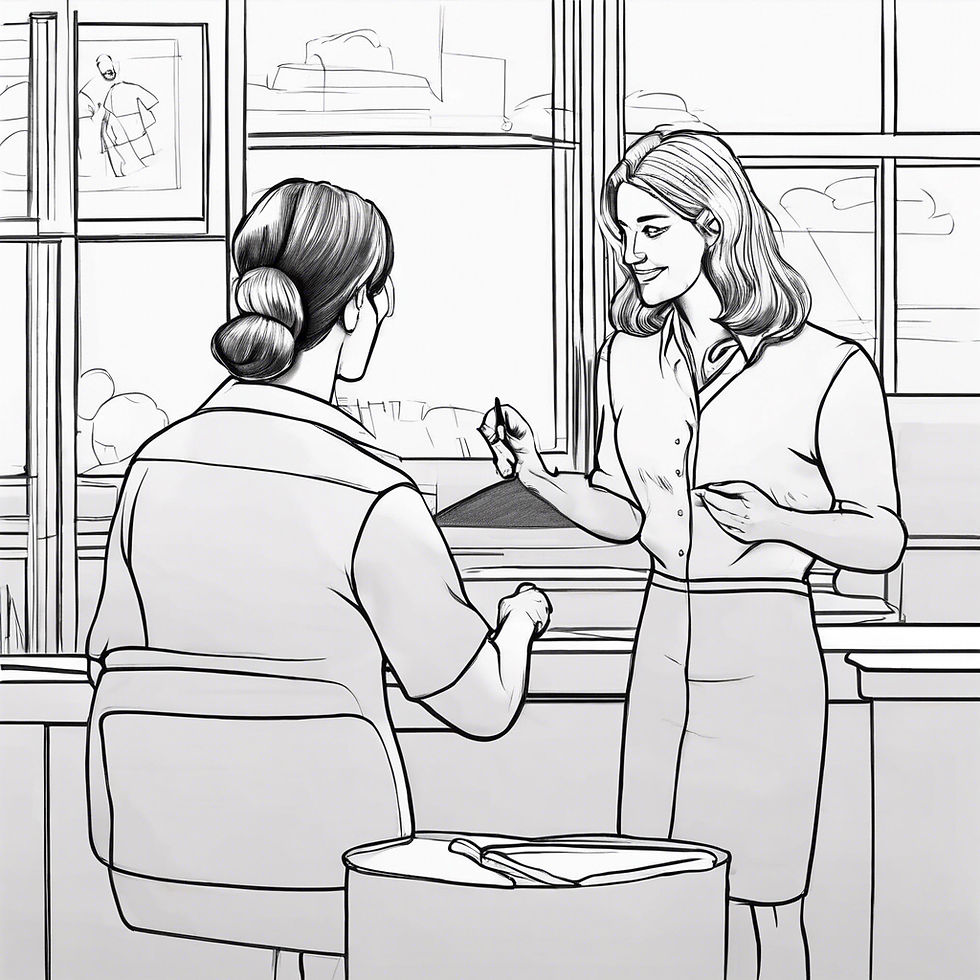Parents, Stop Blaming Teachers: It’s Time to Step Up for Your Children’s Success
- Peace Love Education

- Sep 8, 2024
- 5 min read
Updated: Sep 14, 2024

As education faces one of its most challenging periods in recent history, teachers are increasingly being blamed for students’ bad behavior and poor academic performance. It’s time for parents to take responsibility and stop placing the blame squarely on teachers’ shoulders. If your child is struggling in school—whether academically, behaviorally, or both—it’s not always the teacher’s fault. In fact, more often than not, the success of a child in school is directly linked to the level of parental involvement and support. Parents, it’s time to step up. The future of your children depends on it.
The Real Source of Many Problems: Lack of Parental Accountability
Too many parents are quick to criticize their child’s teacher when things go wrong in the classroom. Whether it’s a bad grade or misbehavior, the teacher often becomes the scapegoat for what is really a more complex issue. According to research by Epstein (2018), family involvement is a critical predictor of student success. When parents engage with their child’s education, students tend to perform better, both academically and behaviorally. Blaming teachers without acknowledging the role of the home environment does a disservice not only to educators but to your children.
Instead of assigning blame, parents must ask themselves a few tough questions:
- Are you actively monitoring your child’s homework and ensuring they are completing it?
- Are you instilling values of respect, responsibility, and accountability at home?
- Are you communicating regularly with your child’s teacher to stay informed of their progress?
If the answer is “no” to any of these questions, it’s time for a change.
Support Your Teachers, Don’t Undermine Them
One of the most damaging things a parent can do is undermine a teacher’s authority. When parents side with their child over the teacher in every dispute—without knowing all the facts—it teaches the child that they don’t have to respect or follow the rules in the classroom. This attitude not only disrupts the learning environment but also sets the child up for failure in the long run.
Research shows that when parents and teachers work together, students benefit immensely. A study by the Harvard Family Research Project (2010) found that students whose parents supported teachers and engaged in school life were more likely to succeed academically and show fewer behavioral issues. However, when parents consistently blame teachers for their child’s failings, they erode the critical partnership between home and school.
Instead of taking a combative stance, parents need to support teachers by reinforcing their authority at home. This means:
- Backing up the teacher’s discipline when your child misbehaves.
- Encouraging your child to take responsibility for their actions and choices.
- Communicating respectfully with teachers, rather than attacking them when things don’t go as planned.
Teachers Are Not Magicians: They Need Your Help
It is important to remember that teachers are not magicians. They cannot single-handedly fix every academic or behavioral problem that a student faces, especially when those problems are rooted in issues that start at home. Teachers are responsible for educating up to 30 or more students in a single class, each with unique needs, challenges, and strengths. The assumption that a teacher can “fix” your child’s behavior or academic struggles without your involvement is both unfair and unrealistic.
According to the National Education Association (2020), teachers make an average of 1,500 decisions per day, juggling lesson plans, behavior management, and administrative tasks, all while working with students who may not have the necessary support at home. Teachers are doing everything they can within the classroom, but without a strong partnership with parents, their efforts can only go so far.
If your child isn’t performing well in school, it’s time to ask how you can help rather than automatically blaming the teacher. Offer your support, attend parent-teacher conferences, and ask the teacher how you can reinforce what’s being taught at home. It’s a team effort, and you, as the parent, are the most important member of that team.
Behavior Starts at Home: Parents Must Set Expectations
Many parents assume that teaching good behavior is the school’s responsibility. However, children’s behavior patterns are first learned at home. When students misbehave in the classroom, it’s often a reflection of what they’ve been allowed to do at home. If there are no clear rules, consequences, or boundaries at home, it’s unreasonable to expect a teacher to miraculously correct that behavior during the few hours they see the child each day.
According to the Centers for Disease Control and Prevention (CDC) (2022), consistent discipline at home is one of the most effective ways to prevent behavioral issues at school. Children need to know that the expectations at home mirror the expectations at school. This means:
- Setting clear rules and boundaries.
- Enforcing consequences for bad behavior.
- Teaching respect for authority and accountability for actions.
When parents fail to do this, it creates confusion for the child, who learns that they can act one way at home and another way at school. Teachers cannot be expected to unteach years of poor behavior patterns that have gone unchecked at home. Parents must take the lead in disciplining their children and instilling values of respect and responsibility.
Kindness and Understanding Go a Long Way
Teachers are human beings, too. They are not infallible, and they don’t always get everything right. But one thing is certain: the vast majority of teachers enter the profession because they care deeply about children and want to make a positive impact. In an era where teachers are facing unprecedented challenges—ranging from overcrowded classrooms to underfunded resources—they need the support and kindness of parents more than ever.
The National Association of Secondary School Principals (NASSP) (2021) stresses that positive parent-teacher relationships are essential for creating a supportive and effective learning environment. Being kind and understanding toward your child’s teacher will not only benefit the teacher but will also set a good example for your child.
If your child is struggling, approach the teacher with empathy and a desire to work together to find solutions. Blaming and finger-pointing will not resolve anything—in fact, it will only further alienate the teacher and create an adversarial relationship. Instead, offer your help, ask for advice, and show gratitude for the hard work teachers do every day.
The Time to Act Is Now
If parents don’t start taking responsibility for their children’s education and behavior, we will continue to see a decline in academic performance and an increase in disruptive behavior in our schools. The future of our children depends on a strong partnership between home and school, and that partnership cannot exist if parents continue to blame teachers for their child’s struggles.
Now is the time to step up. Parents, your child’s success in school depends on your involvement, your support for their teachers, and your commitment to setting clear expectations for behavior and academics. Teachers cannot do it alone, nor should they be expected to. It’s time to work together—for the sake of your children and their future.
References
Centers for Disease Control and Prevention (CDC). (2022). *School connectedness and student behavior: A comprehensive approach to improving outcomes.* https://www.cdc.gov
Epstein, J. L. (2018). *School, family, and community partnerships: Preparing educators and improving schools.* Routledge.
Harvard Family Research Project. (2010). *The role of parent involvement in student achievement: A review of the evidence.* https://www.hfrp.org
National Association of Secondary School Principals (NASSP). (2021). *The power of parent-teacher partnerships in student success.* https://www.nassp.org
National Education Association (NEA). (2020). *Supporting teachers in the classroom: What parents can do.* https://www.nea.org



Comments